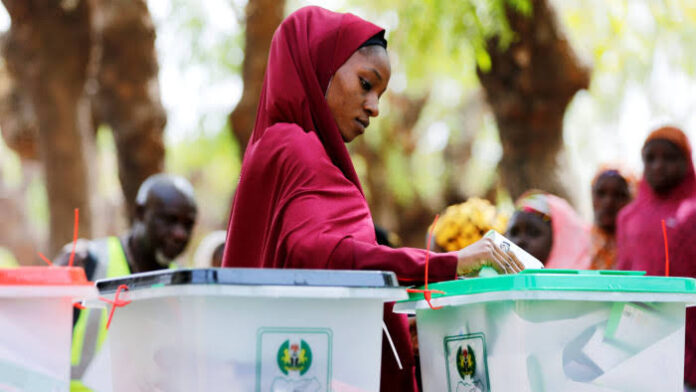With the renewed focus on the voting pattern that would incriminate those who abstain from exercising their franchise in the nation’s elections as being proposed by the nation’s green chamber of the National Assembly, not a few concerns have been raised in several quarters.
The House of Representatives recently passed for the second reading, a bill seeking to amend the Electoral Act 2022 to make voting compulsory for all eligible Nigerians of voting age.
The bill, first introduced in February and sponsored by the Speaker of the House, Tajudeen Abbas, was presented recently by co-sponsor, Daniel Asama, for a second reading.
The proposed legislation includes a provision for a maximum penalty of six months’ imprisonment or a fine of up to ₦100,000 for Nigerians of voting age who fail to vote during elections.
According to the bill’s sponsors, the penalties aim to address persistently low voter turnout, which they claim undermines democratic institutions.
Asama argued that mandatory voting could reduce the influence of vote buying, electoral apathy, and voter inducement.
He also pointed to global precedents, noting that countries such as Australia, Belgium, and Brazil have adopted mandatory voting with positive outcomes in political participation and public accountability.
Nigerian Bar Association has condemned the proposed compulsory voting bill under consideration by the House of Representatives, describing it as unconstitutional and draconian.
However, the NBA rejected the bill, describing it as a violation of civil liberties and democratic principles.
“Section 39(1) of the Constitution guarantees every citizen the right to freedom of expression, which includes the right to remain silent, dissent, and abstain.
“In a democracy, voting is a civil liberty, not a legal obligation. Compelling citizens to vote through coercive measures infringes on their fundamental rights”.
The NBA further cited Section 40 of the Constitution, which guarantees the right to freedom of association, including the right not to associate, stressing that, “Compelling individuals to vote, regardless of their faith in the electoral process or the choices available, violates their personal convictions and political freedoms”.
The association criticised the bill for attempting to criminalise non-participation in an electoral process plagued by voter apathy, mistrust, insecurity, and systemic flaws.
It urged the government to address the causes of low voter turnout, such as electoral violence and vote buying, instead of imposing punitive measures.
“Democracy thrives on consent, participation, and trust, not coercion.
“Forcing citizens to vote under threat of imprisonment undermines the essence of free and fair elections”.
The association warned that passing the bill would set a dangerous constitutional precedent, allowing the government to punish citizens for non-participation in its processes.
“This would pave the way for further erosions of civil liberties under the guise of electoral reform”.
We, however, join calls on NASS to immediately halt any legislative processes advancing the bill.
We, also urged the government and political actors to focus on restoring the integrity of the electoral system, ensuring security on election days, guaranteeing the independence of electoral bodies, and conducting robust voter education to inspire confidence in democratic participation.
Rather than enunciate such a bill, it is advocated here that the democratic structures should be aligned to attract all-comers by avoiding the huge barriers that make voting unattractive.





